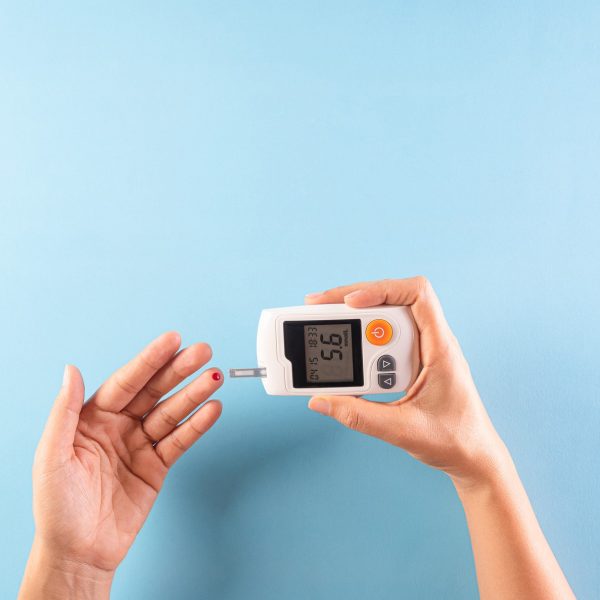Read more: Prenatal Self-Care Guide
Diabetes can be a difficult condition to manage, but with the right preparation and help from your healthcare team, you can successfully navigate pregnancy with diabetes. In this article, we’ll explore how to prepare for pregnancy when you have diabetes, the risks of gestational diabetes, and treatments for managing gestational diabetes. Read on to learn more!
Introduction to Diabetes and Pregnancy
If you have diabetes and are thinking about starting a family, you may be wondering how pregnancy will affect your condition. Although it’s important to be aware of the potential risks, don’t let diabetes stop you from achieving your dream of becoming a parent. With proper care and management, you can have a healthy pregnancy and a healthy baby.
Pregnancy can be a trying time for any woman, but if you have diabetes, there are some additional considerations to take into account. For example, if your diabetes is not well-controlled, you may be at risk for complications such as preeclampsia (high blood pressure), gestational diabetes (a form of diabetes that develops during pregnancy), and macrosomia (a large baby).
You’ll need to work closely with your healthcare team to manage your diabetes during pregnancy. This may include more frequent check-ups, monitoring of your blood sugar levels, and adjusting your medications or insulin doses. You may also need to make changes to your diet and exercise routine. But don’t worry – with careful planning and preparation, you can have a healthy pregnancy despite having diabetes.
Risks of Gestational Diabetes
Gestational diabetes is a type of diabetes that develops during pregnancy. It can cause serious health complications for both mother and child.
The main risks associated with gestational diabetes are:
1. High blood sugar levels during pregnancy can lead to large babies (macrosomia). This can make delivery more difficult and may require a C-section.
2. Gestational diabetes increases the risk of pre-eclampsia, which causes high blood pressure and can lead to premature delivery or stillbirth.
3. Women with gestational diabetes have an increased risk of developing type 2 diabetes later in life.
4. Babies of mothers with gestational diabetes are at higher risk for developing obesity and type 2 diabetes later in life.
5. Gestational diabetes can also lead to jaundice and low blood sugar levels in newborns (neonatal hypoglycemia).

Preparing for Pregnancy With Diabetes
If you have diabetes, you may be wondering how it will affect your pregnancy. Diabetes can make pregnancy more complicated, but with the right preparation and care, you can have a healthy pregnancy and a healthy baby.
Here are some things to keep in mind as you prepare for pregnancy:
Talk to your doctor: Before you start trying to get pregnant, talk to your doctor about your diabetes. They can help you manage your diabetes and make sure that it doesn’t put you or your baby at risk.
Get your diabetes under control to help you stay healthy: Having diabetes means that you need to carefully control your blood sugar levels. This is especially important during pregnancy. High blood sugar levels can cause problems for both you and your baby. Talk to your doctor about how to best control your blood sugar during pregnancy.
Take care of yourself: Pregnancy is a time when you need to take extra care of yourself. Eat healthy foods, exercise regularly, and get enough rest. These things will help you stay healthy and reduce the risks associated with diabetes.
Plan for delivery: You will need to plan ahead for how you will manage your diabetes during labor and delivery. Work with your doctor to come up with a plan that will work for you.
With the right preparation, you can have a healthy pregnancy even if you have diabetes.
Read more: All About Prenatal Care and Check-Ups
Nutrition Tips for Women With Diabetes During Pregnancy
If you have diabetes and are pregnant, you need to be extra careful about your diet and nutrition. Here are some healthy:
1. Eat small, frequent meals throughout the day instead of large ones. This will help to keep your blood sugar levels under control.
2. Make sure to include plenty of fresh fruits, vegetables, and whole grains in your diet. These foods are packed with nutrients that are essential for a healthy pregnancy.
3. Avoid processed foods, sugary drinks, and excessive amounts of saturated and unhealthy fats. These can all lead to complications during pregnancy.
4. Drink plenty of water every day to keep yourself hydrated. This is especially important if you have gestational diabetes, as it can help to prevent high blood sugar levels.
5. Get regular exercise; even a moderate amount of activity can help to improve your blood sugar control during pregnancy. Just be sure to check with your doctor before starting any new exercise routine.
Exercise During Pregnancy With Diabetes
Exercise is an important part of a healthy pregnancy, but if you have diabetes, you need to take some extra precautions. First, check with your doctor to make sure it’s safe for you to exercise. If you have gestational diabetes, there’s a higher risk of complications, so your doctor may recommend against it.
If you have type 1 or type 2 diabetes, you can still exercise safely if you take precautions. First, always check your blood sugar before and after working out. If your blood sugar is too low, don’t exercise until it comes back up. And if it’s too high, cut back on the intensity or duration of your workout.
It’s also important to wear the right shoes and socks to prevent blisters and other foot problems. And be sure to drink plenty of water before, during, and after exercise to stay hydrated.
If you have any other health conditions, such as heart disease or high blood pressure, be sure to talk to your doctor before starting an exercise program. With their help, you can find an exercise routine that’s safe for both you and your baby.
Read more: Prenatal Yogasanas for Each Trimester
Treatments for Gestational Diabetes
Gestational diabetes is a type of diabetes that develops during pregnancy. It can cause high blood sugar levels and serious health complications for both mother and baby. There are treatments available to help manage gestational diabetes and keep blood sugar levels under control. These include diet, exercise, and medication.
Diet: A healthy diet is important for all pregnant women, but it is especially important for those with gestational diabetes. Eating small, frequent meals and avoiding sugary snacks can help keep blood sugar levels in check.
Exercise: Exercise is another important part of managing gestational diabetes. Just 30 minutes of moderate exercise per day can help lower blood sugar levels.
Medication: In some cases, medication may be necessary to control blood sugar levels in women with gestational diabetes. Insulin injections are the most common form of medication used to treat this condition.
Conclusion
Pregnancy with diabetes can be a stressful and uncertain time but with the right information, preparation, and care it is possible to have a healthy pregnancy. We hope that this article has given you some insight into what to expect when pregnant with diabetes as well as tips on how to prepare for your upcoming baby. Being prepared can make all the difference in having a successful delivery and giving birth to a healthy baby. With the right knowledge and support team around you, there’s no reason why you cannot successfully manage your diabetes during pregnancy.


Thank you for submitting your details.
We will share the pdf on your email. 😁
We will share the pdf on your WhatsApp. 😁
We will share the pdf on your WhatsApp
& email. 😁

























Share this article